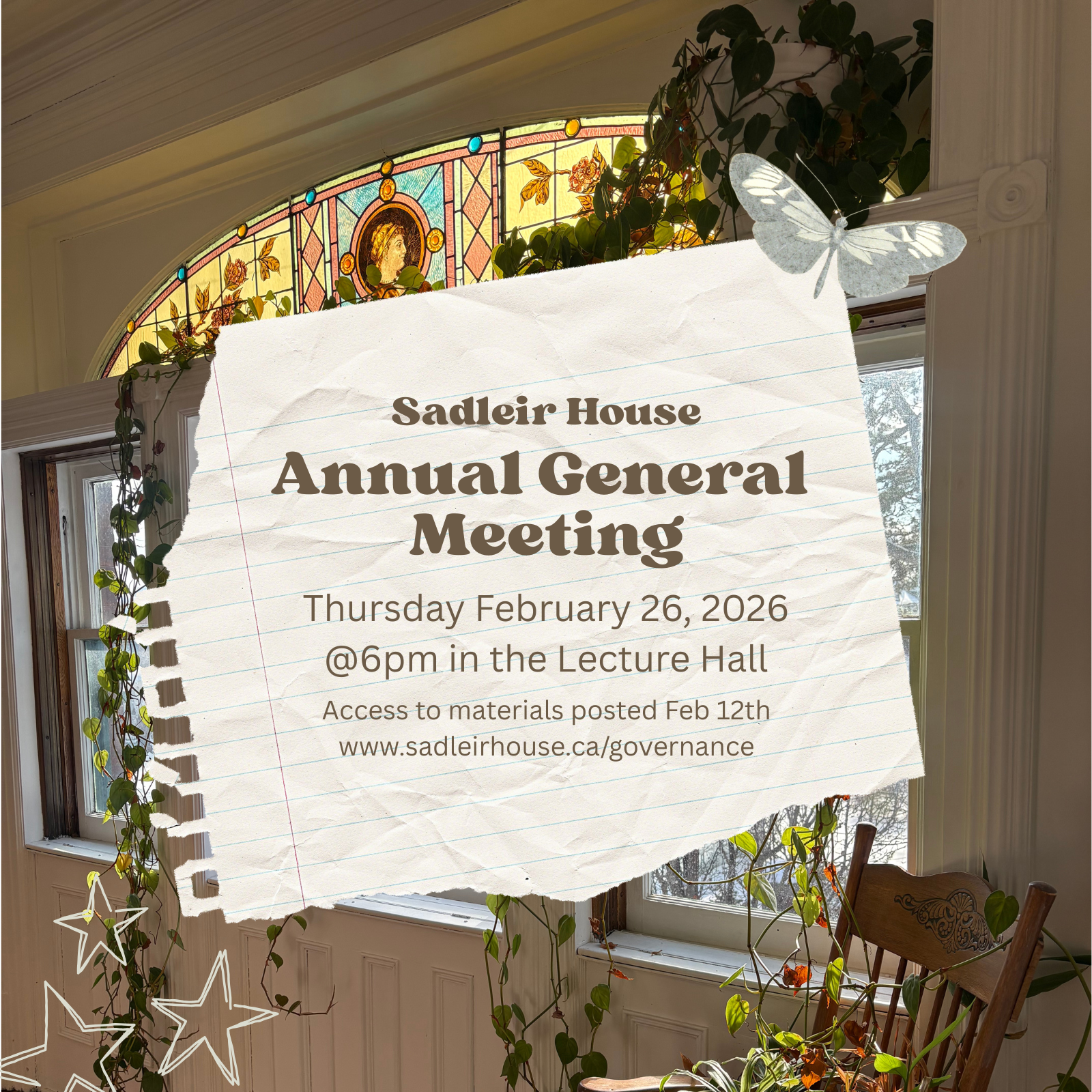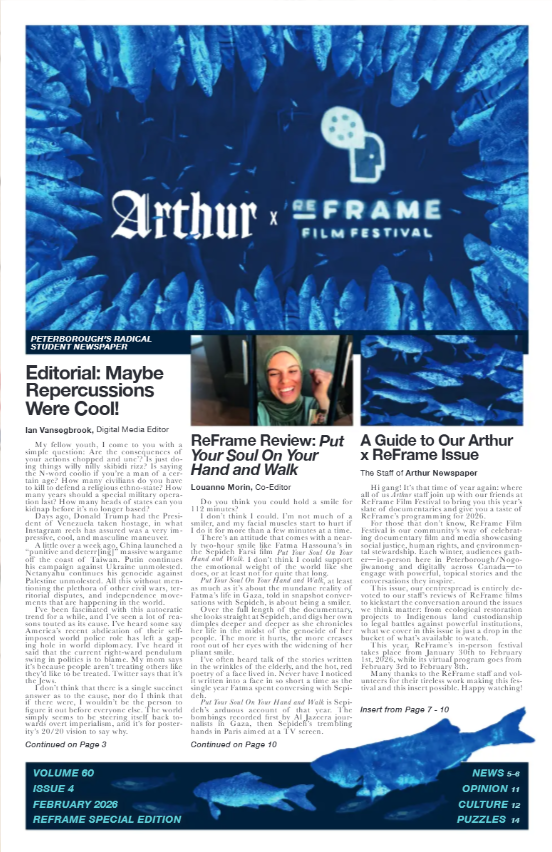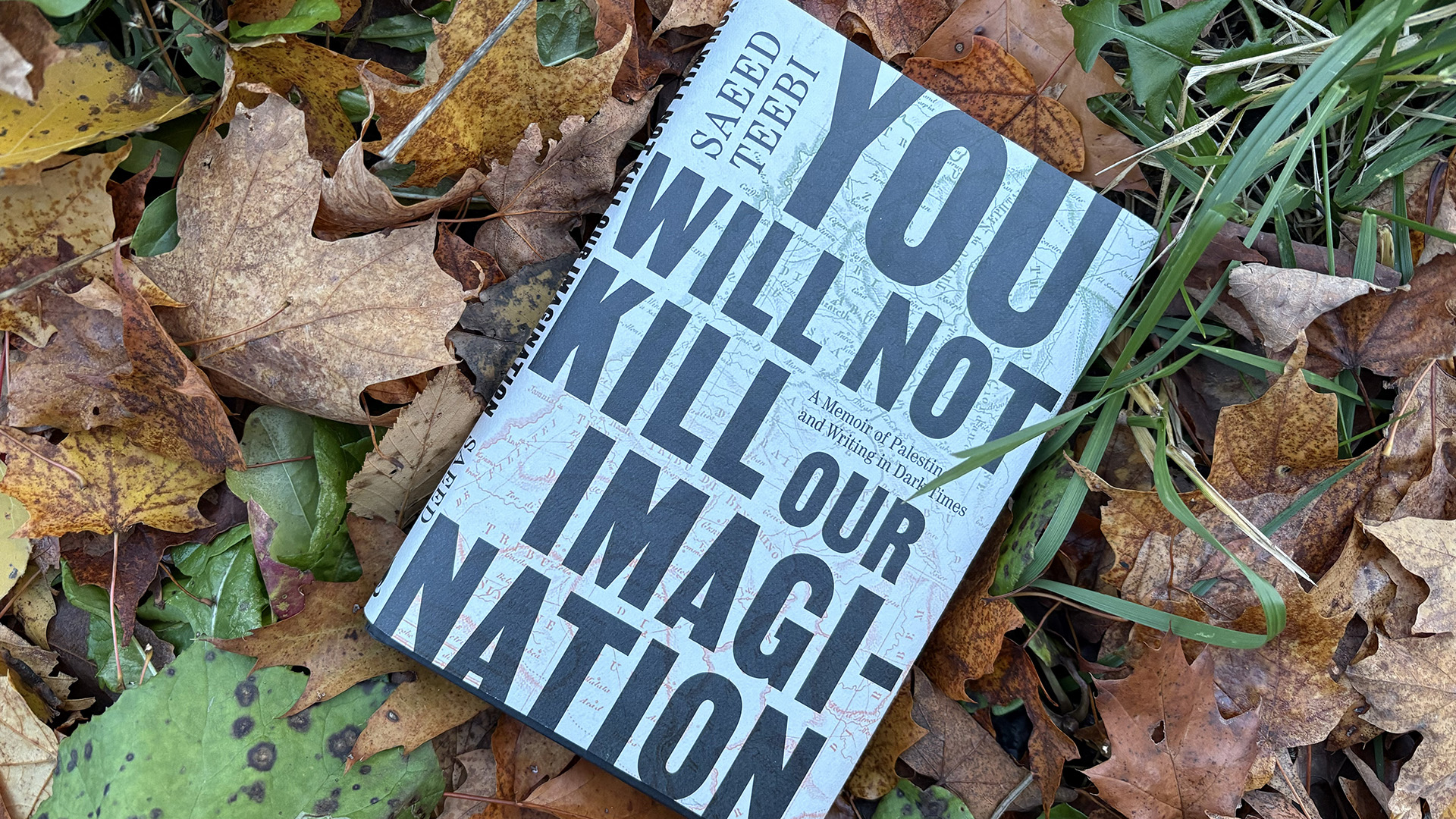I first encountered Dr. Christopher Dummitt, “historian of Canadian Culture and Politics”, and his work in a first-year Canadian Studies course syllabus, which he co-authored. There were two required readings in Quillette Magazine, neither of which were authored by him.
For some of you, “Quillette” means absolutely nothing.
That being said, it might be productive, before going further, to introduce our unfamiliar readership to the publication Quillette Magazine, and its relationship with Christopher Dummitt.
Aside from the articles on my syllabus, Dummitt does have two articles published with Quillette; Confessions of a Social Constructivist” and “The Canadian Historical Association’s Fake Consensus on Canadian Genocide,” which we will get into shortly. After all, with a title like that, how could we not?
But to rewind a few years, the first time I heard of Quillette was in 2019, when they were a victim of a hoax meant to demonstrate their shoddy editorial credibility. They received an exposé, supposedly written by a member of the Democratic Socialists of America, of which the more clearly ironic segments were edited out, and published without any further fact-checking. Shortly afterwards it was revealed to be a purposeful hoax.
Self-described as the magazine of the “Intellectual Dark Web,” Quillette originates out of Canada’s own Rebel Media (whom I have already had the misfortune of encountering through my coverage of the Peterborough anti-lockdown movement).
Claire Lehmann, at the time an on-air contributor to Rebel Media who regularly rubbed elbows with the likes of white nationalist Faith Goldy and Proud Boys founder Gavin McInnes, founded Quillette Magazine in 2015 out of “a loose cadre of academics, journalists and tech entrepreneurs who view themselves as standing up to the knee-jerk left-leaning politics of academia and the media,” writes Amelia Lester for Politico.
Quillette could very well warrant its own article. Some of its writers are staunch proponents of race science. More than a handful of prominent Quillette contributors are both members of, and use the research of, the “Human Biodiversity Movement” as cited foundational research for their own academic pursuits.
This “research” is often referred to as the “pseudo-scientific racism of the alt-right.”
In Donna Minkowitz’ article exploring Quillette, she notes more than a handful of prominent Quillette contributors, “Kevin M. Beaver, Brian Boutwell, Adam Perkins, Jason Richwine, and John Paul Wright” who have appeared on white nationalist Stefan Molyneux’s show to share “their research” on topics like race, intelligence, and “criminality.”
Dummitt has two articles published with Quillette, both of which we’ll have time to visit over the course of my article. Let’s get back to Quillette later.
During the Harris years, Trent University underwent a process of what has come to be described as corporatization by its detractors. It could, in many ways, be thought of as a crystallization of neoliberal austerity and cultural ossification, localized in Ontario post-secondary institutions (while coinciding with capitalism’s own growing pains associated with globalization). At Trent, this would materialize institutionally as a shifting of administrative power from the bi-cameral senate system to the board of governors, which would negate faculty autonomy and bolster that of wealthy executives. It would also amount to the destruction of Peter Robinson College expunging a centre of institutionalized liberatory left-wing politics that could (and did) come to threaten the imposition of neoliberal austerity at Trent University.
Dummitt, however, operates on the opposite opinion, positing that Canadian academia is instead a bastion of a left-wing bias.
Decrying a supposed ‘academic left-wing bias’ makes up one of a few main key points of Dummitt’s more recent academic work. The other, a coy promotion of biological determinism which, in my opinion, is disguised as his self-described “masculinity studies,” and the third, decrying the designation of Canadian colonization as a genocide.
Objection to a Canadian Genocide
On his objection to Canadian colonization as a “genocide,” Dummitt has been a particularly enthusiastic proponent.
He published on his website, and was a public signee on, a letter to the Canadian Historical Association’s statement, on Canada Day, demonstrating his objection to Canada’s treatment of Indigenous peoples being considered a genocide. In the open letter the signees note that;
“The issue represents a lively debate amongst scholars, many of whom differ in their assessments of this question. Differing interpretations are to be expected in a vibrant scholarly community that welcomes open debate, viewpoint diversity, and a commitment to assessing the past based on primary evidence. By pretending that there is only one interpretation, the directors of the CHA are insulting and dismissing the scholars who have arrived at a different assessment. They are presenting the Canadian public with a purported “consensus” that does not exist.”
So anyway, I think Dummitt’s (and the handful of academic signees on this letter) objection to a Canadian genocide is wrong both because it’s a weak framework to evaluate history, but also because he turns a very persistent, generational trauma, into a redundant discussion over the designation of what is and what is not technically considered a genocide amongst Canadian scholars, effectively just making a semantic argument.
Besides, the number of scholars who share his view on Canadian genocide, is so marginal that it’s deliberately obfuscatory to claim a consensus does not exist.
His next article of note on the subject, “This Canada Day: Let’s Cancel the Cancellers,” was published in The Hub (edited by ex-Conservative Prime Minister Stephen Harper’s economic advisor); the byline reads, “The social media campaign is rooted in an astounding ignorance of history.”
Here, Dummitt frames the entire, mass-settler revelation of colonial genocide as occurring in 2021, as just another part of the relatively recently conceived notion of the conservative “culture war.”
More accurately though, he says we’re the ones doing that (those who, according to him, view opposition to the celebration of national chauvinism as nothing but another chapter in a not even a half-decades old spectre of ‘cancel culture’).
Not once in the article does he mention anything in his own memory of colonial resistance.
Nothing about Kanehsatake resistance, the Gustafsen lake stand-off, Idle No More, the movement for MMIW; to Dummitt, the idea of cancelling Canada day is one divorced from its historical lineage. This is a very ahistorical approach for a professor of history to take; to see anti-colonialism as an expression of ‘cancel culture’ is to detach the contemporary moment from its historical context. It also doesn’t account for the many ways Indigenous Peoples are presently affected by colonialism.
To return to the article though, there are a few crucial points. It’s a vapidly embarrassing discourse for me to have to sift through, but essentially it concerns an argument around comparisons to ‘tribal conflict’ between Indigenous Nations, of course neglecting to mention the incredibly significant role that early-Europeans had in stoking those pre-existing conflicts vis-a-vis the imposition of colonial alliances, trade networks, and the introduction of infectious disease. Lest Dummitt mentions the barbarism of the Religious Wars of early-Modern Europe in his discussion on moral relativity, of course.
His next piece on the subject matter, which I mentioned earlier, titled “‘The Canadian Historical Association’s Fake Consensus on Canadian Genocide” directly concerns his affront to the designation of genocide towards Canadian colonization, and it’s his greatest hit, in my opinion, for how far Dummitt is willing to go in his pursuit in decrying Canadian colonization from being labelled a genocide.
He spends no less than three paragraphs stipulating the physical nature of the gravesites of Indigenous children, deploring the relationship that Canadian media-accounts made to former Nazi-mass gravesites (even though that relationship is in fact much more relevant than Dummitt makes it out to be in his sarcasm, an embarrassing coincidence perhaps).
He goes further to call the idea of an ongoing genocide in Canada “bizarre,” and rails against the supposed “broad consensus” on the subject, citing no official consensus among Canadian scholars in what is an argument about professional scholarship and semantics.
He specifically references a COVID-induced, “anxiety-driven moral panic,” the culture war, and U.S. race relations, on why we (as anti-colonial thinkers, or activists) were ‘quick’ to label Canada’s colonization a genocide.
As if anti-colonial activism has never grasped the structural relationship of Canada to celebrations of national chauvinism, like Canada Day, before the epoch of cancel culture.
The anti-colonial tradition in Canada is obviously a canon with a far longer and livelier history than implied by Dummitt in his article. He is fixated with using cancel culture to explain a rapidly growing anti-colonial zeitgeist amongst new sectors of the settler-population.
‘Left-Wing Bias’ in Academia
Dummitt says there exists a ‘left-wing bias’ in academia that works institutionally to halt the spread of conservative ideas.
Universities do this, according to Dummitt, through a combination of restrictive syllabi and hiring practices that bar those who refuse “to provide statements demonstrating their adherence to the notion of equity” (Dummitt writes in an article published in 2021 in reference to the topic of discriminatory hiring practices towards conservatives in Canadian academia).
Frankly, I don’t want to spend a lot of time on this point - I find it obnoxious. Dummitt points to supposed ‘ideological litmus tests’ as institutionalising political beliefs in Canadian academia that discriminate against conservatives. This complaint amounts to discriminating against those who reject ‘equity,’ as Dummitt puts it.
Conservatives have been bloviating about this persecution for a long time, and I do not think that neither Arthur readership, nor those who would disagree with my assessment of Dummitt in the first place, need me to investigate much further into what I think is positioning towards a media grift.
Recently, ex-CBC writer Tara Henley made headlines with her public departure from the CBC, citing a lot of the same grievances as Dummitt and prompting a serious social media response, including several accusations of grifting and a particularly embarrassing appearance on Canadaland that doesn’t do her any favours in suggesting otherwise.
Even more recently, right-wing ideologue Jordan Peterson made waves with his public departure from the University of Toronto, citing nearly identical concerns as Dummitt highlights in his aforementioned article.
But this is a grift that has already proved particularly lucrative for the American conservative movement. Even when you examine the broader hysteria around the spectre of ‘cancel culture’ outside of ways Conservatives weaponize it-- the one that conjures the miasma of the #MeToo movement of years past –you realize that this now mostly bygone era enriched most, if not all, of the serial-abusers who found themselves targets of the #MeToo movement. Many of whom have now been culturally revitalized in a short few years and have made millions in the process. But I digress.
In my own living memory, the first to implement something similar to the grift I'm describing was ‘non-profit' Turning Point USA. Questionable financial dealings aside, the organisation is probably best known for creating a database of left-wing professors in academia that would subsequently be used to spur mass harassment campaigns.
Charlie Kirk would publish “Liberal Bias Starts in Economic Textbooks” in 2012, in (at the time) early-Trump political advisor Steve Bannon’s Breitbart magazine; where Kirk argues that “our classrooms are slowly becoming political lecture halls with teachers being pawns to further the doctrine of liberalism and “equality”. Sound familiar?
Closer to home though, the type of systemic harassment I describe in relation to non-profit Turning Point’s data-base of left-wing professors, is nearly systematized in the case of proponents of Palestinian anti-colonialism in Canadian universities. The type of censorship Dummitt decries in relation to conservative ideas on Canadian campuses isn’t actually targeted towards conservatives, it’s targeted towards the left.
I’ve already alluded to a very specific example of this described in the Growing Pains Podcast and the destruction of Peter Robinson College as a centre of a libratory left-wing politic, but you don’t necessarily have to look far to find tangible examples of left-wing censorship on Canadian universities. Compare the example of Jordan Peterson, who, as I mentioned, voluntarily departed his post at the University of Toronto, but Valentina Azarova's candidacy was terminated in a very public hiring scandal at UofT earlier last year due to her public criticism of the Israeli occupation of Palestine, which further resulted in the resignation of all three members of the university’s advisory board. Anti-BDS (Boycott, Divest, and Sanction) and pro-Palestine sentiments are attacked to the extent of name-and-shaming campus activists who support BDS through the Canary Mission, a blacklist made with the express intent of intimidating campus activists.
Rate my Professor
I began this op-ed writing about the corporatization of Trent University for a reason, not just because like Dummitt, I also like to self-promote, but because I, having spent a not-insignificant amount of my time exploring this corporatization process in depth for my own independent journalism project, found out how to draft this article.
I already wrote ‘The Curious Case of Christopher Dummitt’ back in May of 2021, which I never published. Back then, I focused on rebutting Dummitt’s celebration of Canadian colonial history at length, which I did mostly through a series of historical and theoretical arguments, which, in hindsight, would have been a mistake to engage in at all.
Dummitt's body of work is profoundly boring and unexciting to me, even as someone who follows the minutiae of an acutely innovative conservatism with oftentimes disproportionate interest.
And really, the reality is that I already authored this article in May, and let it slide until January as I pursued other creative projects. Dummitt has not done anything interesting between those two points except publish the same article on Canadian academic bias against conservatives in November as he did in the national post at the beginning of 2021 in May.
You are much, much better off ignoring Chris Dummitt’s courses in my opinion. My own biggest takeaway is just that Chris Dummitt is kind of embarrassing for Trent, a university that makes significant claims towards decolonization.
My other takeaway is that this is an arch that many have already followed with psychology professor at University of Toronto, and right-wing ideologue, Jordan Peterson.
Dummitt is interjecting into the debate over the designation of Canadian genocide as Peterson interjected into the Canadian debate over transgender rights during the implementation of Bill C-16; which effectively formed the nucleus for Peterson to galvanize a misogyny and reactionary ideology among young men under his tutelage.
I think Peterson’s ‘weaving together’ of pre-existing social bedrocks, linking the demands of trans activists to postmodernism and free speech discourse, and policy debate around Bill C-16 in many ways mirrors Dummitt’s approach to nationalism and the designation of a Canadian Genocide, academic integrity, and a reminiscent bio-determinism of Peterson, except instead of Bill-C16, it is framed as a gripe with Gender Studies departments in universities.
Dummitt could prompt a similar psychological reaction in settler-society to having to confront Canadian genocide as Peterson did in 2015.
Dummitt himself though, is nothing new to conservatism and in my opinion, his ideas are nothing close to as disruptive as Peterson’s were at the time just following the ire provoked by Gamergate, and there is extraordinarily little left to be said from people who write the same type of stuff I do, about his brand of conservatism.





.png)













.jpg)



.jpg)

.jpg)


.jpg)
.jpg)

.png)